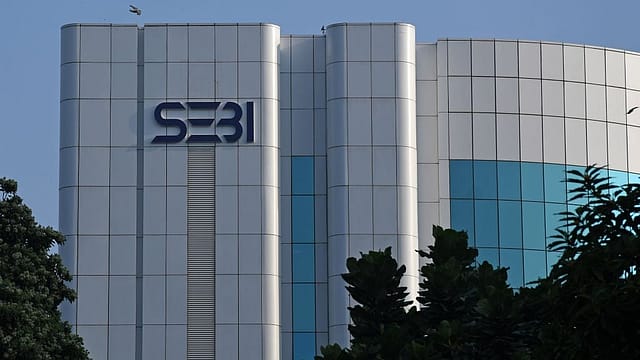Sebi ramps up crackdown on investment, research advisers in FY25, flags ₹77,800 cr as 'difficult to recover' dues
ADVERTISEMENT

Capital markets regulator Sebi ramped up its crackdown on investment advisers and research analysts in FY25, with its inspections rising ninefold. The regulator also marked ₹77,800 crore worth of dues as "difficult to recover (DTR)", the dues that could not be recovered even after exhausting all the modes of recovery. Sebi, in its latest annual report for FY2024-25, said there was a decrease of 30% in the number of registered investment advisors to 931 in FY25, alongside the increase of 17.3% in the number of research analysts to 1,577 in FY25.
There has been a substantial rise in the number of inspections conducted for investment advisers, research analysts and RTAs during 2024-25 vis-à-vis 2023-24. The probes conducted for RAs increased to 149 in FY25 from 15 in FY24, and for investment advisors, it increased to 207 from 21 in the previous year.
Difficult to recover (DTR) dues, which could not be recovered even after exhausting all the modes of recovery, stood at ₹77,800.4 crore. Out of the total DTR certificates, 143 fall under the untraceable category, 136 relate to individuals and seven to companies. "As on March 31, 2025, out of the pending 4,335 recovery certificates, 899 recovery certificates have been certified as DTR and the total amount under these DTR certificates is ₹77,800.4 crore," Sebi said. Of this, DTR dues pending before court-appointed committees stood at ₹61,204 crore in FY25, marginally up from ₹59,969.7 crore in FY24.
Sebi's pending amounts to be recovered as of March 31, FY25, stood at ₹1.04 lakh crore. A total of 7,723 recovery certificates were generated, out of which 4,335 recovery certificates are pending. Out of the total amount to be recovered, ₹63,206 crore or 61.43% is just from two big cases still stuck in the legal process -- PACL Ltd and Sahara India Commercial Corporation Ltd. These relate to collective investment schemes (CIS) and deemed public issues (DPI).
During 2024-25, at the main board, 2,185 scrips were moved under the Additional Surveillance Measure (ASM), while 555 scrips were moved under ASM at the SME platform. Compared to the previous year, the number of scrips moved under ASM at the main board fell marginally, but scrips moved under ASM at the SME platform rose sharply by 56.3%, showing that the regulator is watching smaller companies more closely. The number of scrips flagged under stricter Graded Surveillance Measure (GSM) fell by 12.4% in 2024-25.
The year saw Sebi significantly increasing the inspections on stock brokers to 312 from 146 in FY24. For stock brokers in the debt segment, the number of inspections increased manifold to 15 and 90. The regulator's inspections on mutual funds and their respective registrar and transfer agents (RTAs) surged to 24 in FY25, and the inspection of 13 portfolio managers was also initiated.
The insider trading investigations completed fell to 192 in FY25 from 287 taken up in the said year. Market manipulation cases remained almost steady 106 complaints taken up and 105 completed by Sebi. The regulator's in-house surveillance system generates alerts for any abnormality in trading patterns. Based on these alerts and on the basis of complaints received, inputs provided by the examination reports of the stock exchanges, etc., it investigates the matters.
In its probe against allegations of misstatement in financial statements, 59 cases were taken up in FY25, of which 55 cases were concluded. In its enforcement actions, prohibitive directions under section 11 of the Sebi Act, 1992, were issued against 560 entities and prosecutions were filed against 69 entities.
Sebi, which is empowered to initiate prosecution, initiated 42 prosecution cases in FY25, while the courts disposed of 100 cases. At the end of March 31, 2025, 1,048 prosecution cases were pending before various courts, it said. Analysis of the number of entities pertaining to 89 disposed of cases during 2024-25 shows that 155 entities were related to market manipulation, 41 entities pertained to violation of IA regulations, 116 entities related to disclosure (LODR) regulations and 27 entities were related to violation of insider trading (PIT) regulations. A total penalty amounting to ₹813.83 crore was imposed against various securities market violations during the year.
During 2024-25, Sebi completed adjudication proceedings against 1,293 entities through 374 orders. Out of these, 332 are adjudication orders passed against 633 entities, and 42 are settlement orders passed against 660 entities.